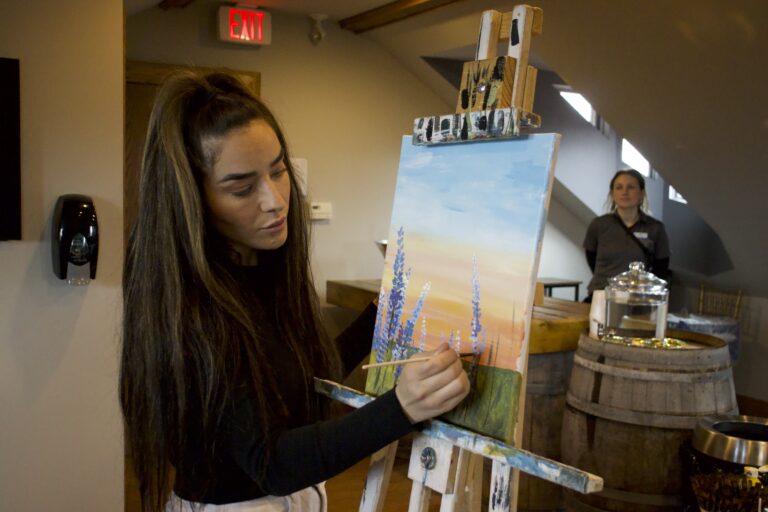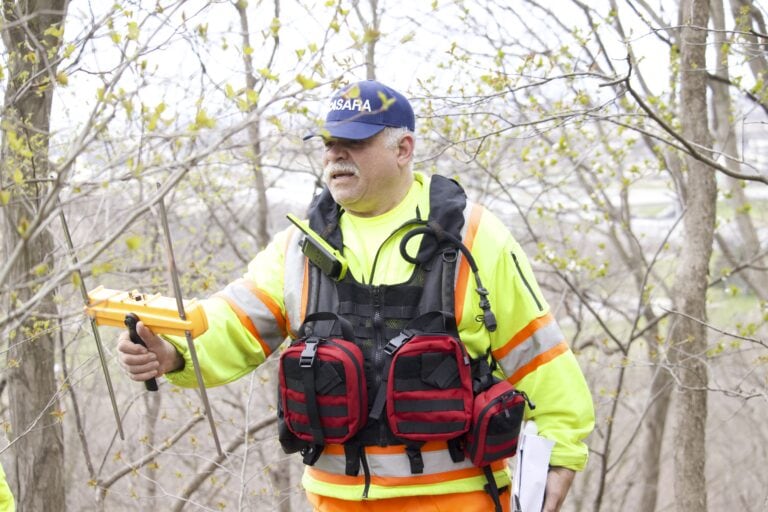1968 medallist happy to see focus on athletes' mental well-being, not just winning
There might not have been anyone more excited than Elaine Tanner to witness the Canadian women swimmers’ exploits in the pool at the Tokyo Olympics.
She’s been there, knows what it takes to excel and what happens if you don’t meet others’ expectations.
For Tanner, a triple medallist at the 1968 Games, seeing the confident and personable Canadians perform so well was gratifying.
“Oh gosh, I’ve just been so proud of those girls,” said Tanner, now a resident of Niagara-on-the-Lake.
“When you're on a winning streak you really pick up that bravado. When you see Maggie Mac Neil, who won the gold in the butterfly, it really, really uplifts the whole team.”
Instead of Canadian women swimmers being long shots, “they’re now big shots in the pool. It's so great to see the girls really have a lot of confidence in themselves.”
With star athletes like Penny Oleksiak, Simone Biles of the U.S. and tennis phenom Naomi Osaka speaking about the pressures and mental health concerns they have faced, a vital conversation has started and sport is slowly changing, Tanner said.
“It's about time that sport has tackled and put in the spotlight the mental health issue, and especially the pressure in sport,” she said in an interview. “At least we're talking about it now.”
Tanner knows first-hand what can happen when you’re in the spotlight.
In the 1960s when she was an international superstar, “there were no sport psychologists, no education, no help or support,” Tanner recalled.
Athletes didn't even know how the demands of sport could lead to psychological disorders or post-traumatic stress.
Nicknamed “Mighty Mouse” when she represented Canada in the 1968 Mexico City Summer Games, the five-foot-two Tanner carried the weight of a nation’s sporting desires on her 17-year-old shoulders.
When she “only” won two silvers and one bronze, the media and public criticism over the lack of a gold medal sent her into a decades-long spiral of mental anguish and PTSD.
She was barely out of the pool in Mexico when the “Why did you lose?” questions started. The fact the entire Canadian Olympic contingent in 1968 only won two other medals didn’t seem to matter to many people.
After three decades of dealing with the aftermath of not meeting a nation’s expectations, that she had “let everyone down,” Tanner welcomes the new era of high-performance athletes speaking out about protecting their mental health.
She credits organizations like Swim Canada for preparing and educating athletes about how to handle the pressures and expectations.
“I'm so glad that these girls like Simone and Naomi are saying now that ‘My mental health is just as important as my physical health,’ ” she said. “Athletes are just human beings and we always have our moments of self-doubt.”
Tanner, now 70, has authored a children’s book, “Monkey Guy and the Cosmic Fairy,” and also has written about her post-Olympic struggles and successes on her websites, Quest Beyond Gold and elainetanner.ca.
She speaks of the “hidden gifts” that came from all the adversity she faced.
“If I hadn't gone through the struggles that I went through over the decades after the Olympics, I wouldn't be the person I am today. I wouldn't have the wisdom I have today. And the gratitude and the peace that I have today, of just of who I've become.”
One of the problems with seeing yourself solely as an athlete or lawyer or artist, “or whatever you identify with in life, is the danger that you become one-dimensional. And that all of your self-worth rises or falls on that performance,” she said.
But humans are multi-dimensional and we must embrace that, she added.
“I built myself up from the outside in, but learning about life and maturing and becoming wise is knowing that you're far more than that, and that you need to build yourself up from the inside out.”
She said she was just chatting the night before with fellow former Olympian Nancy Greene Raine about how, despite progress, sport still has a long way to go, especially the Olympics, “because it's a different kind of monster.”
“The Olympics itself has become so much bigger. It's much more commercialized and you can get swept up in that current and you lose yourself,” Tanner noted.
“But we have to remember that really we started the sport because we found joy in doing it. We can't lose that joy. We can't lose that authenticity,” she added.
“Once we create a brand for ourselves, we can get caught up in that branding. You can actually lose yourself in the branding of it and you begin to think, ‘Who am I really?’ You can't lose touch with your real self.”
She urged parents to avoid living vicariously through their children’s exploits, whatever they are.
Rather, parents need to teach kids they are far more than what they perform, “that there's so many chapters of our life, that swimming or track or hockey or whatever it is that you want to do, it’s a couple of chapters in your life. But it's not your whole story,” Tanner said.
And when you fall short or don’t succeed, “process and validate your feelings,” don’t ignore them, she said. “It’s a lot like going through grief or loss.”
Because “it's what you give. In the end, it's not what you take. If you can become the best person that you can be, and act with kindness and compassion, and learn about love, that's really what life is all about.”
Tanner won 3 of Canada's 5 total medals in 1968
Over the years, Olympic athletes keep pushing themselves to go faster, higher, stronger.
When Elaine Tanner won silver in 1968 in the 100-metre backstroke in Mexico City, her time of 1:06.70 was exactly one second faster than the gold medallist's swim four years earlier in Tokyo.
Tanner's silver in the 200-metre backstroke clocked in at 2:27.40. According to the Olympic statistics archive, that is the first time women competed in the 200 backstroke.
This year in Tokyo, Canadian Kylie Masse took silver in both those races, swimming 57.72 in the 100 and 2:05.42 in the 200. So, 53 years after Tanner's swims, times continue to fall steadily.
In Mexico City, Tanner and her teammates also took bronze in the 4×100-metre freestyle relay. Their time was about 10 seconds behind the Olympic record set by the Australians this year.
Her performances in 1968 gave Canada's “Mighty Mouse” three Olympic medals. The entire Canadian contingent, across all sports, only won two other medals.



.jpg)







